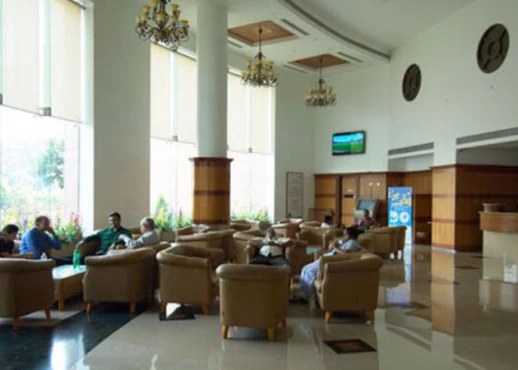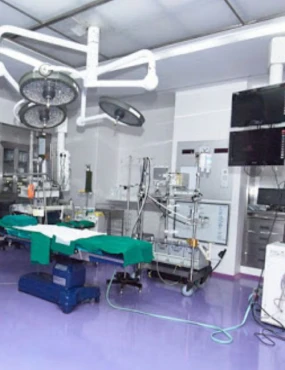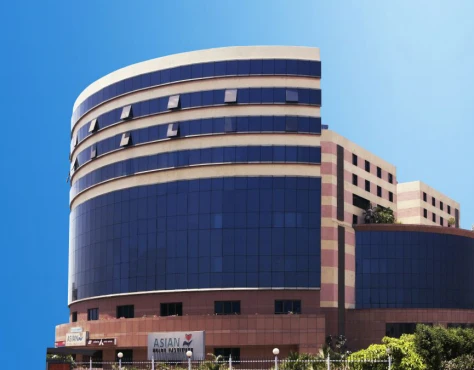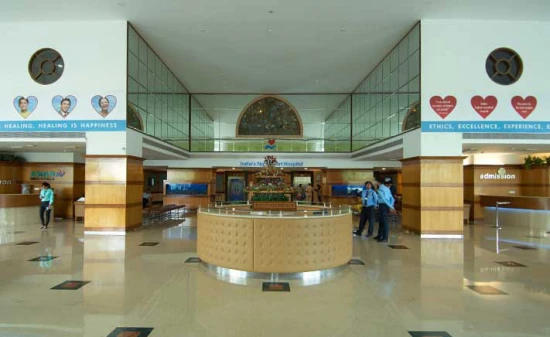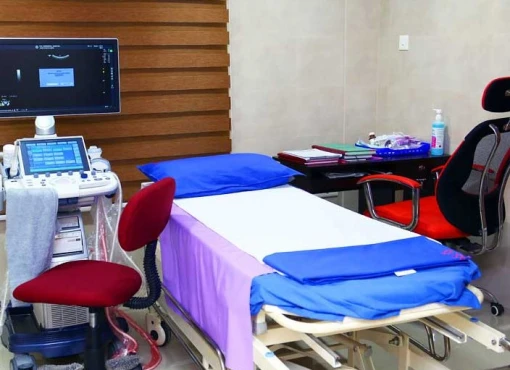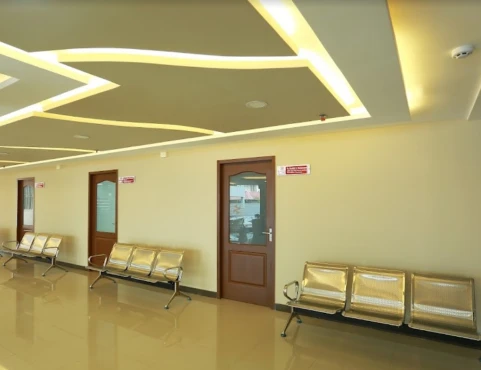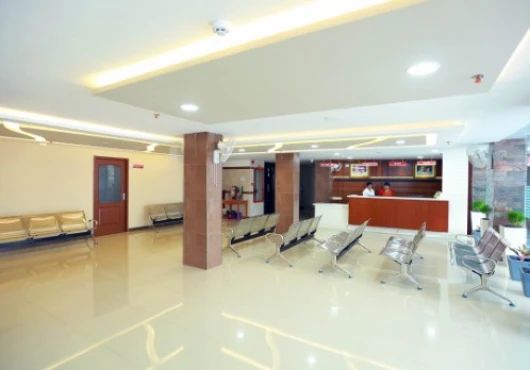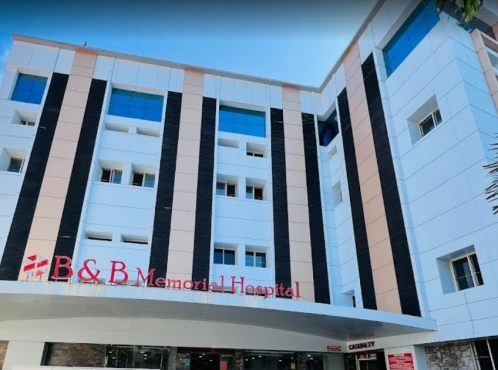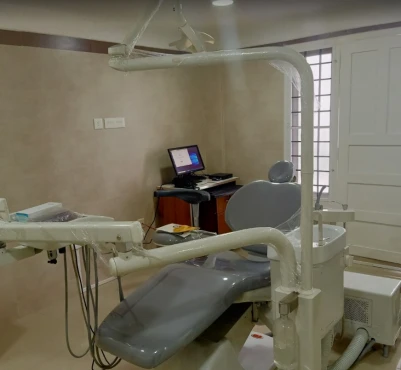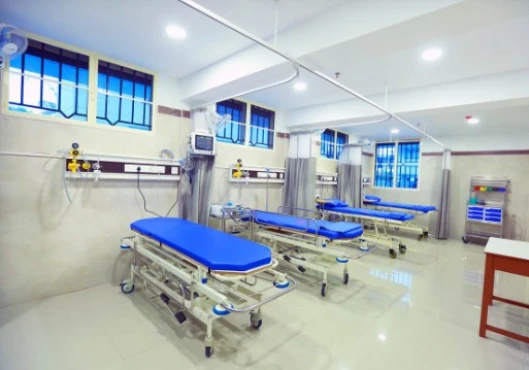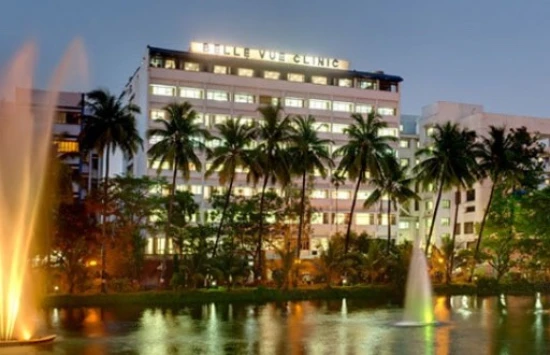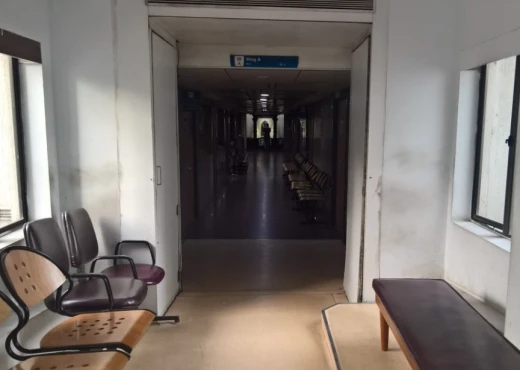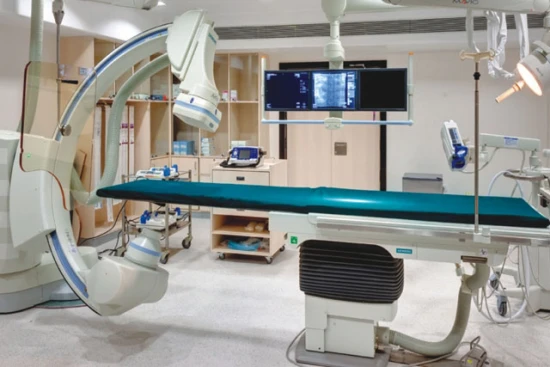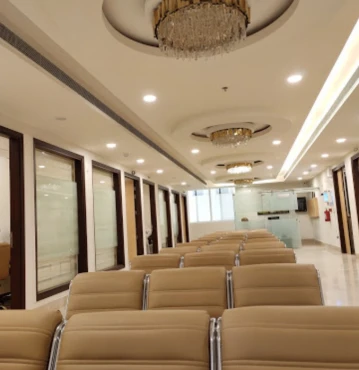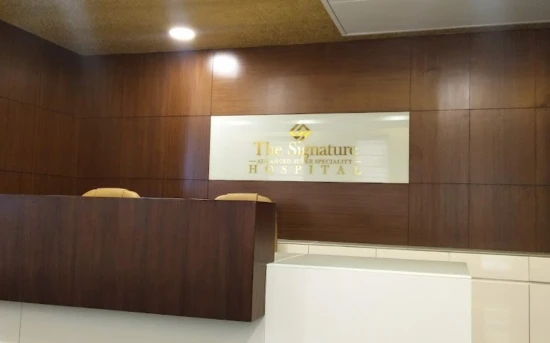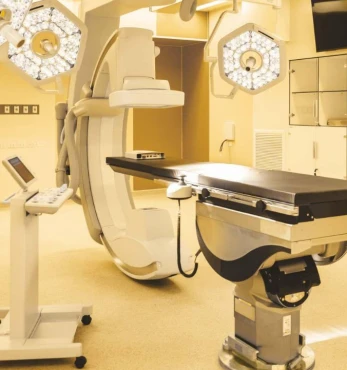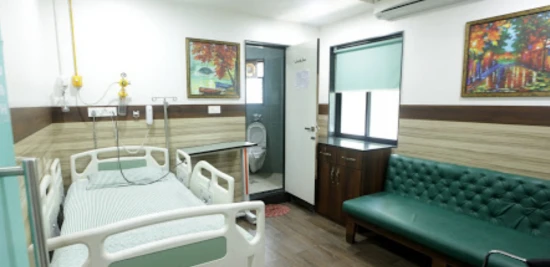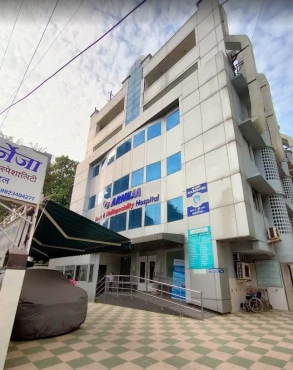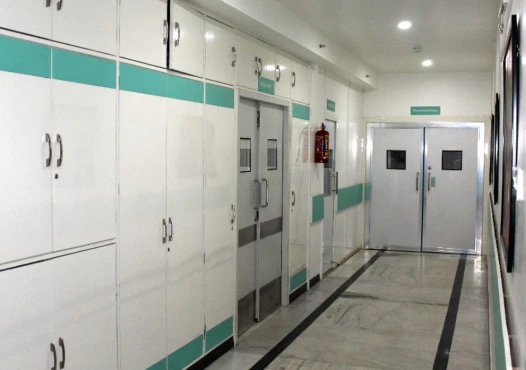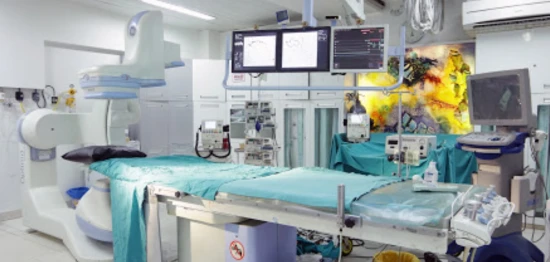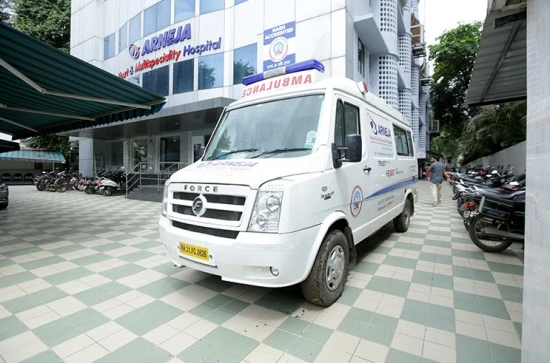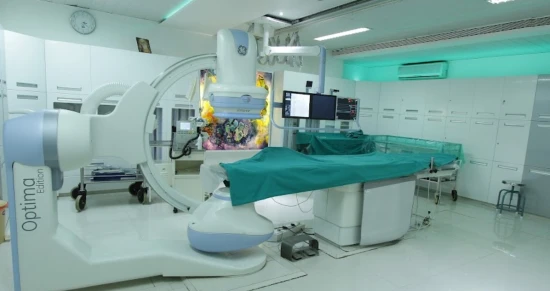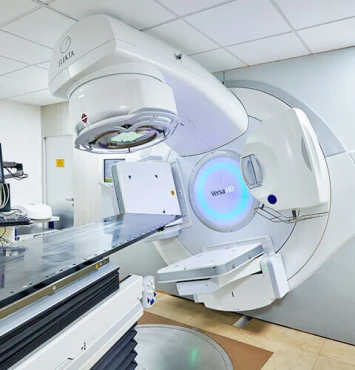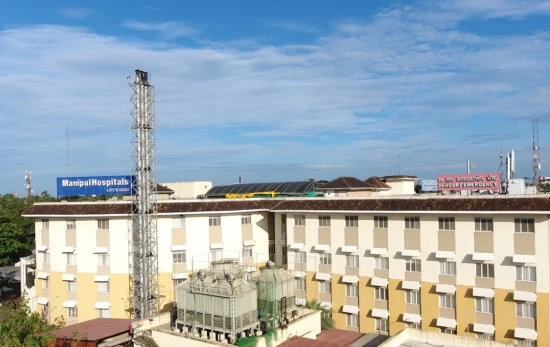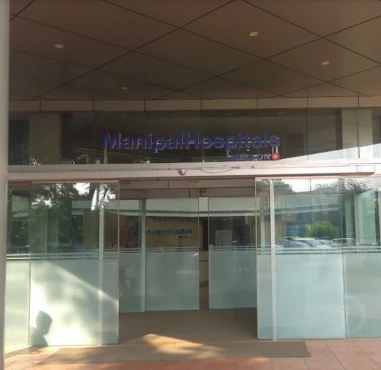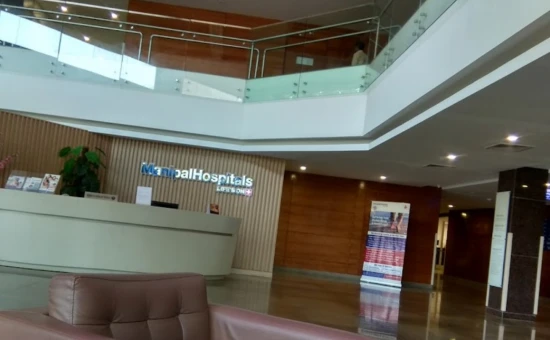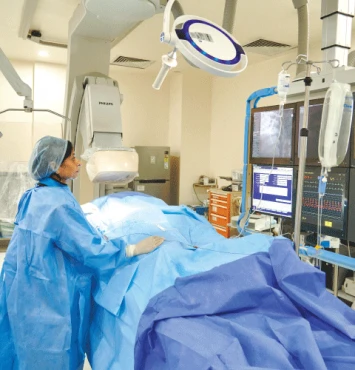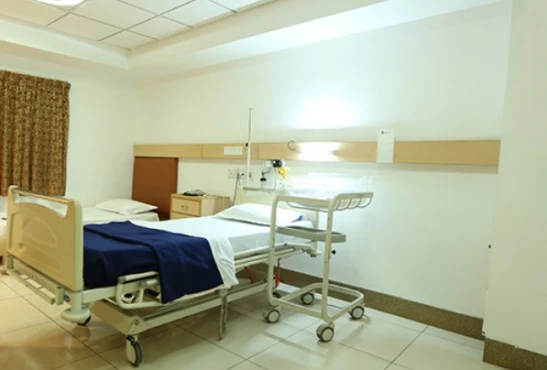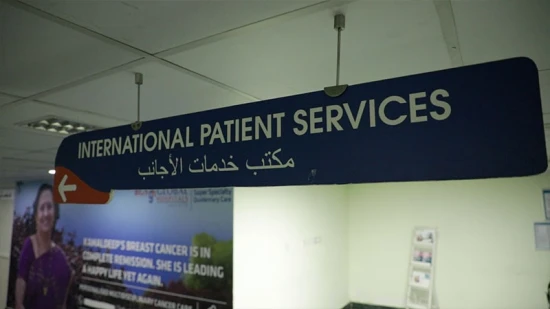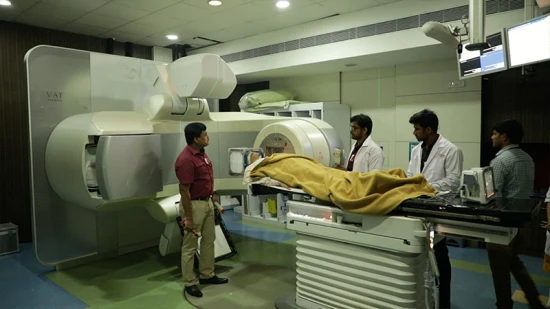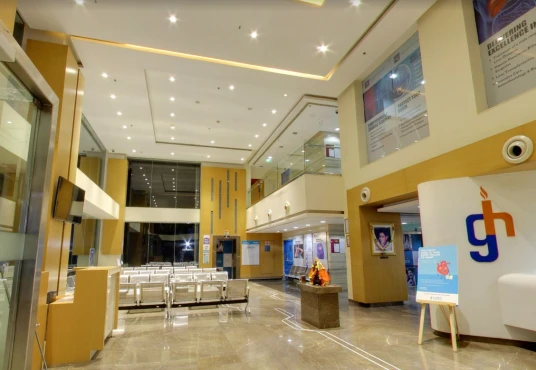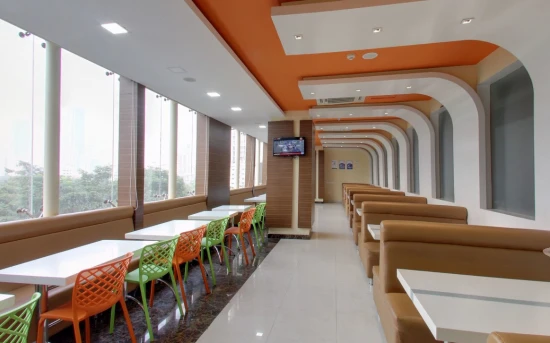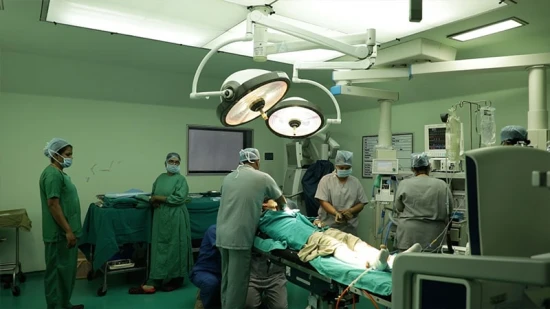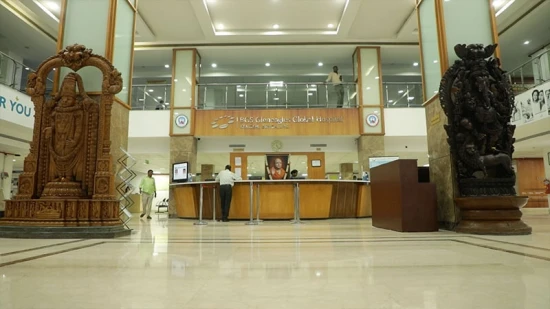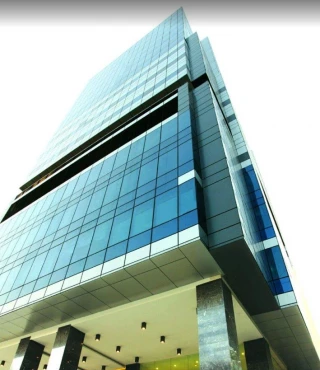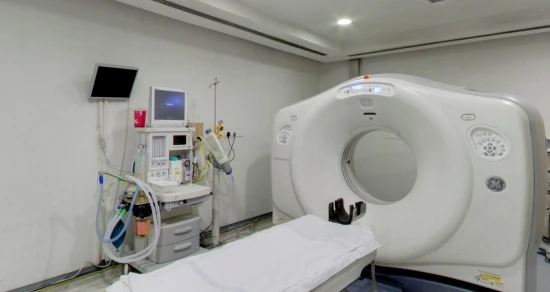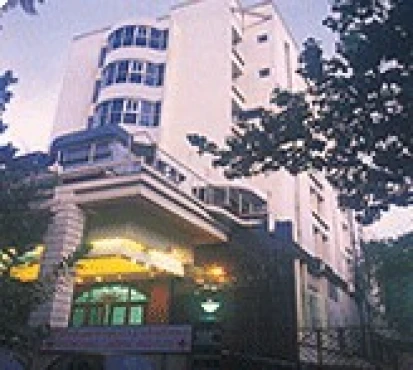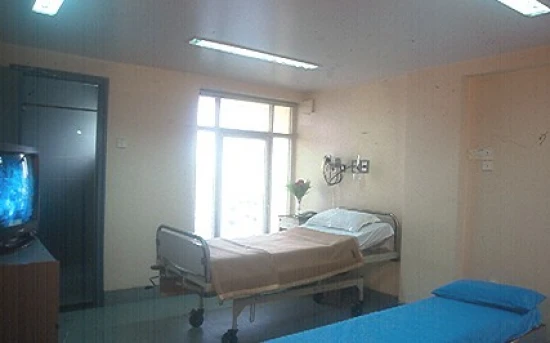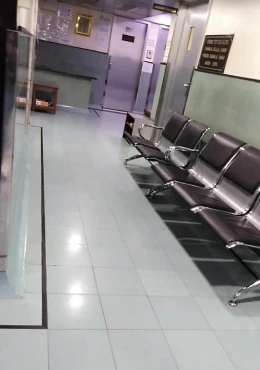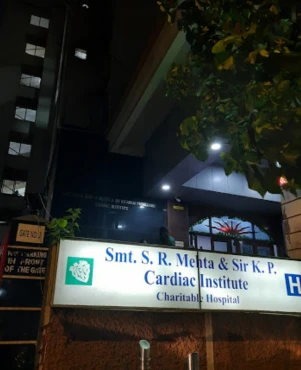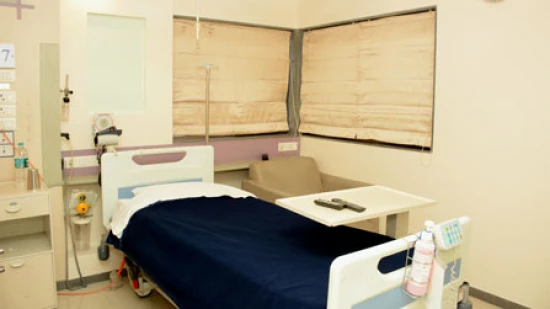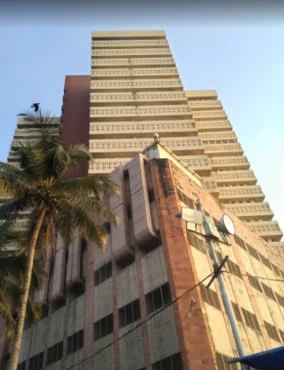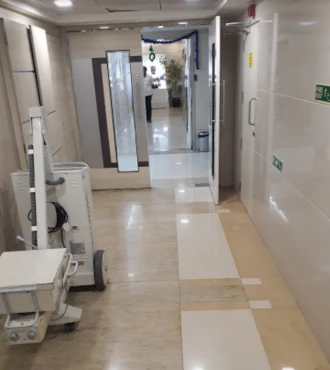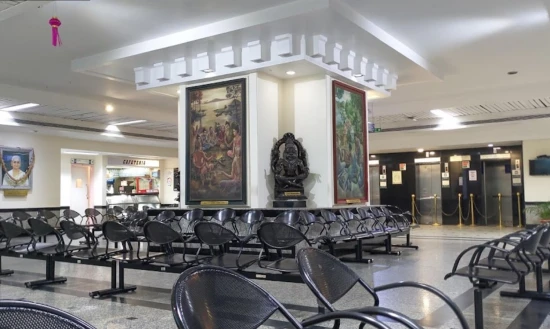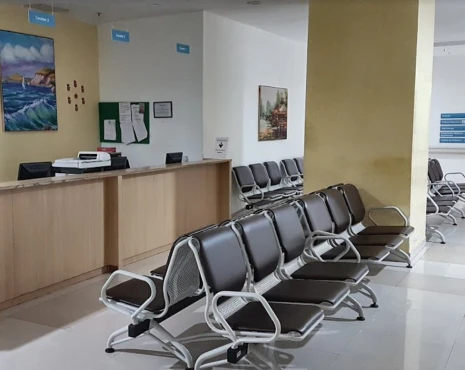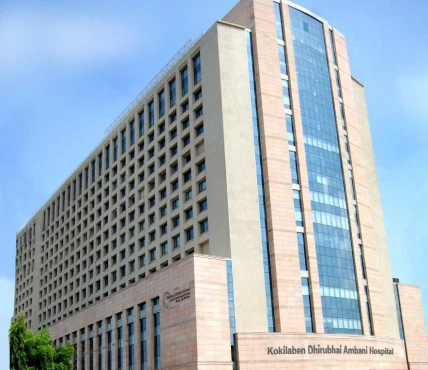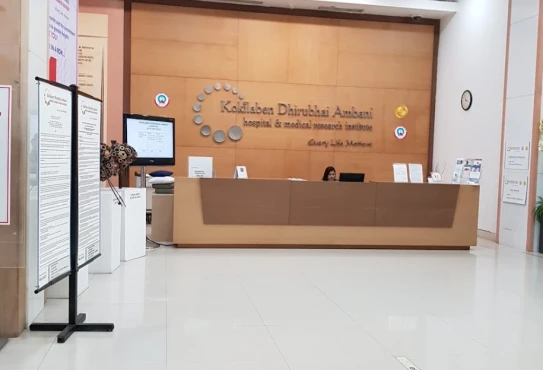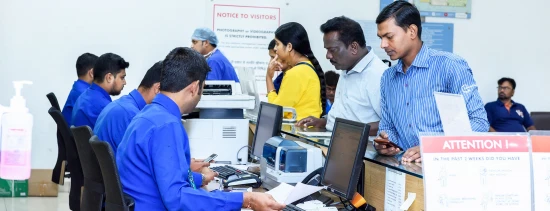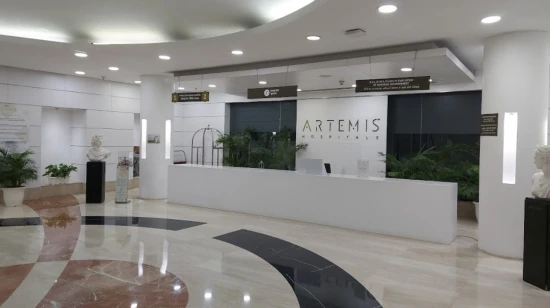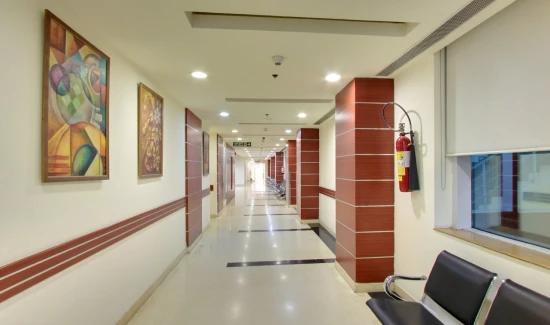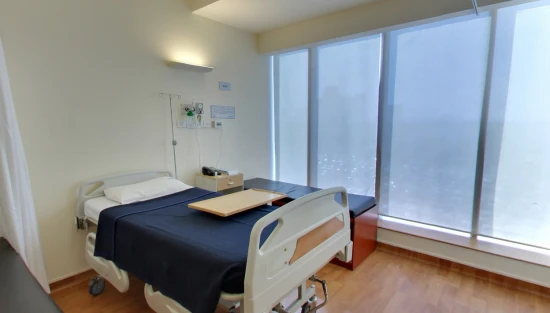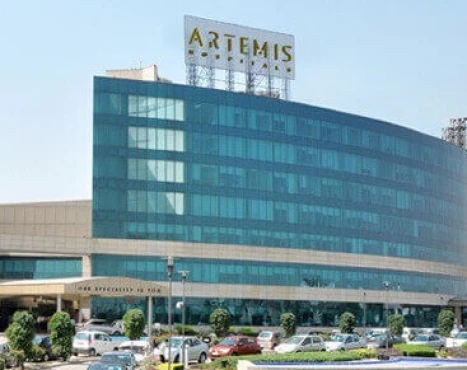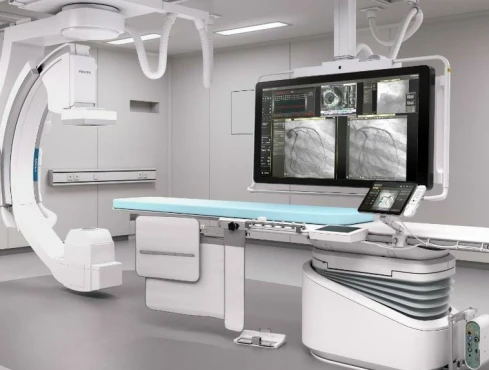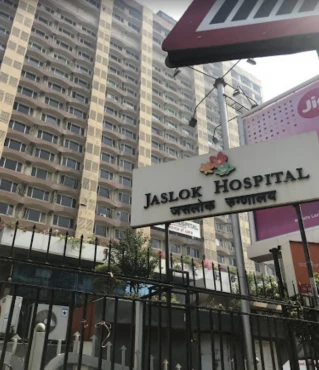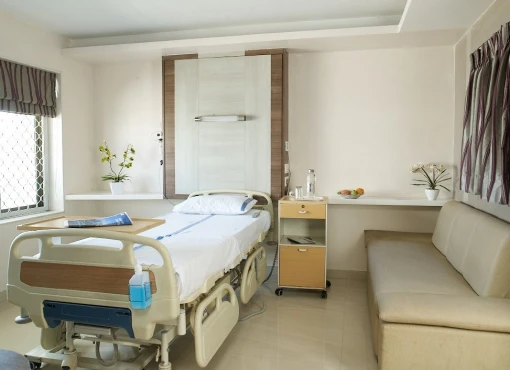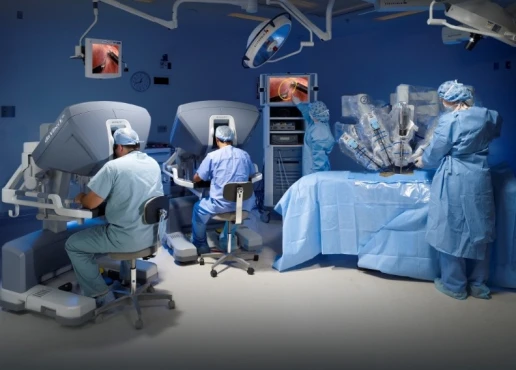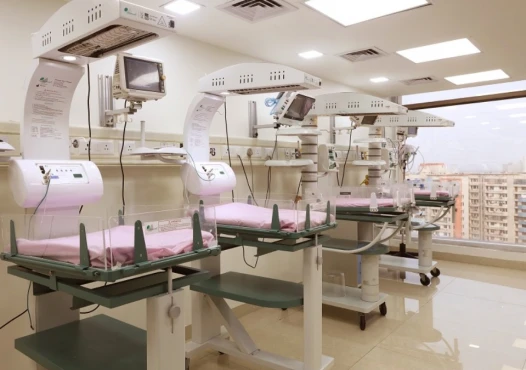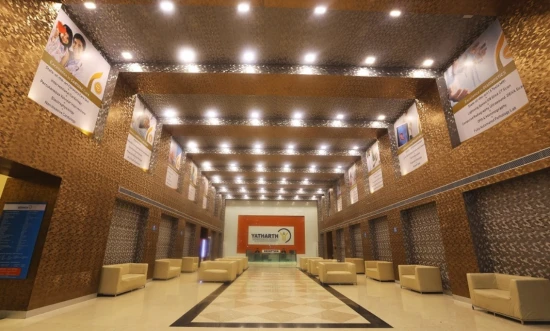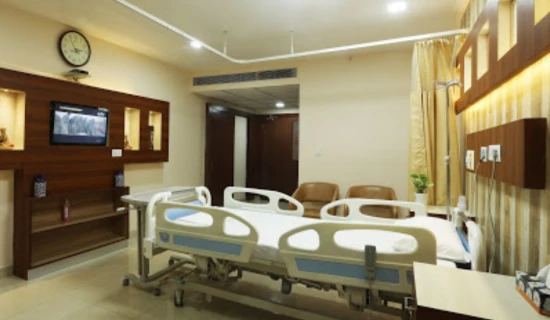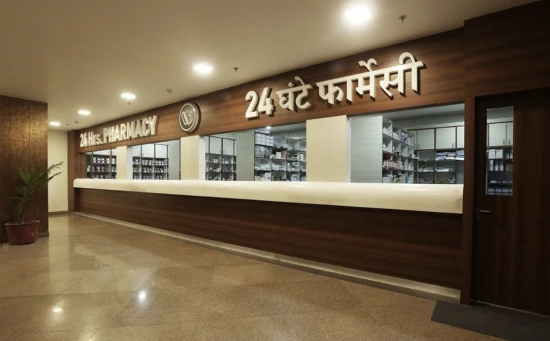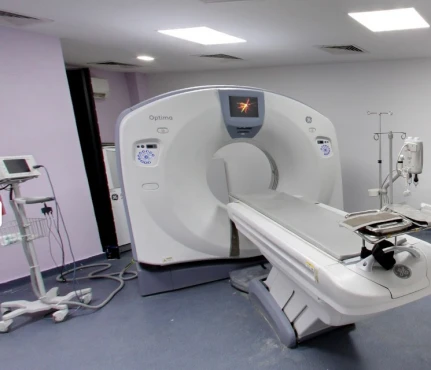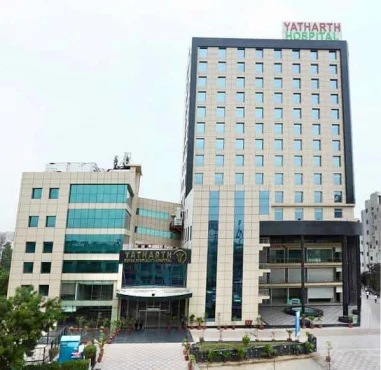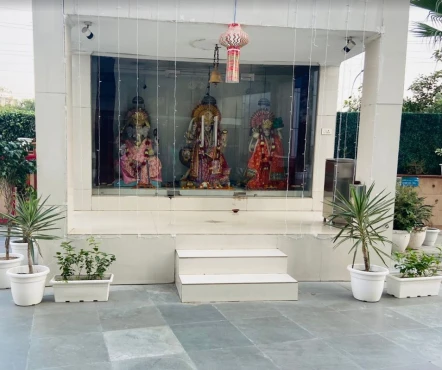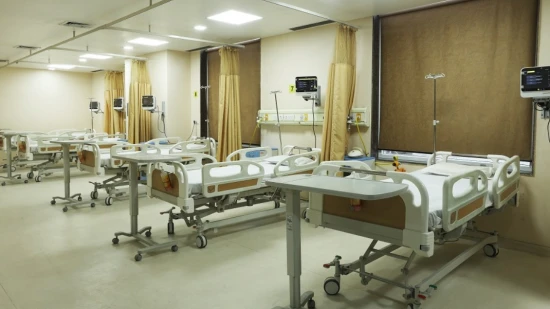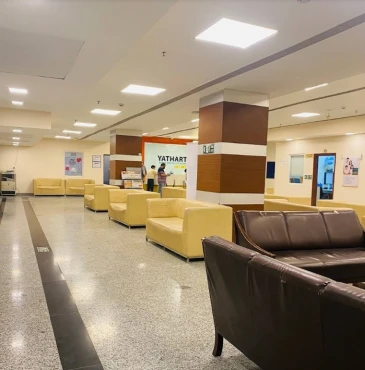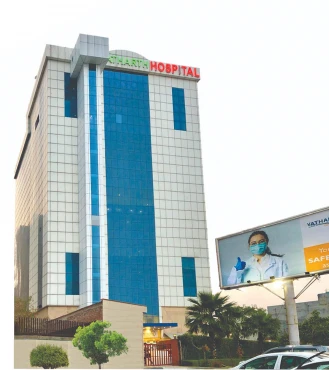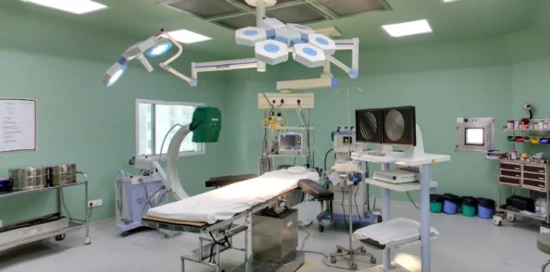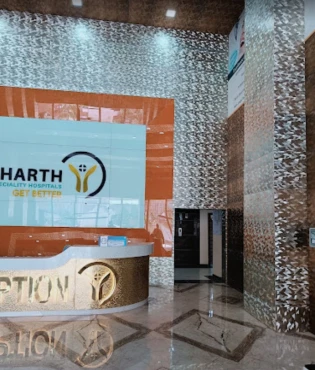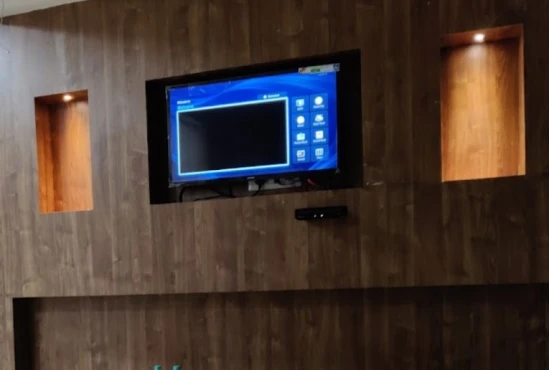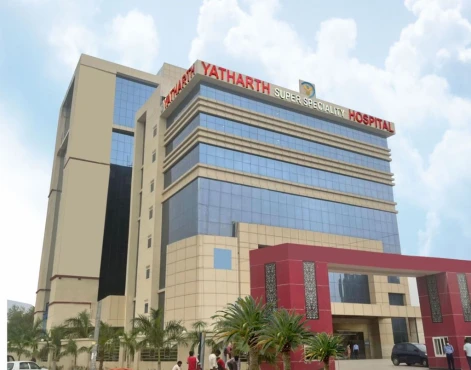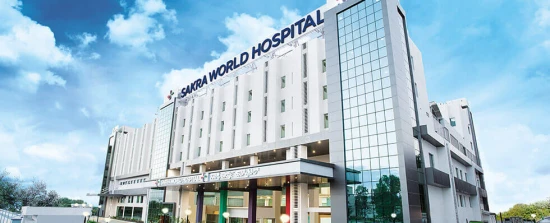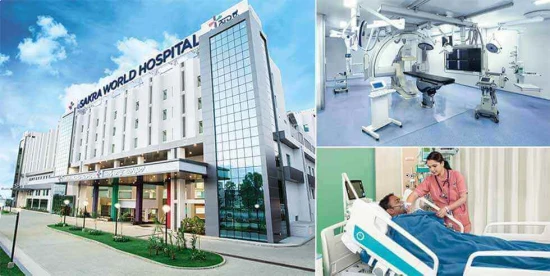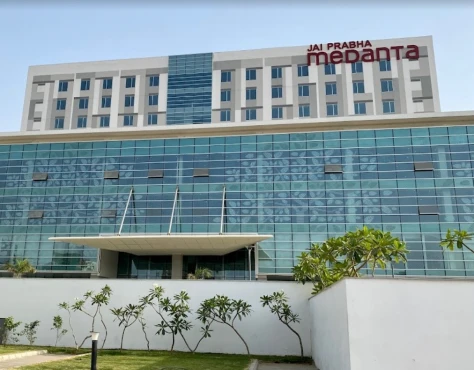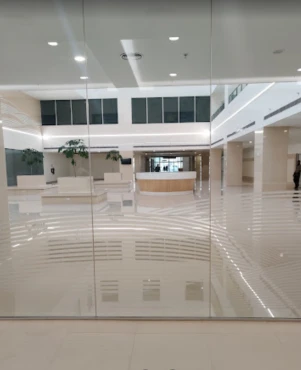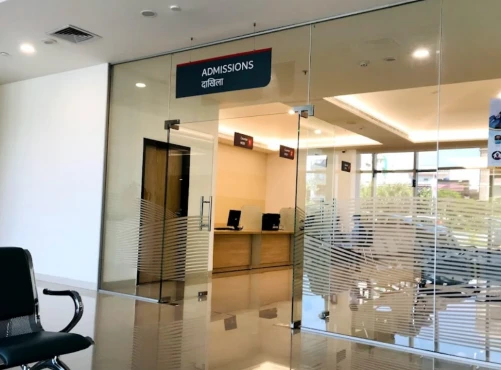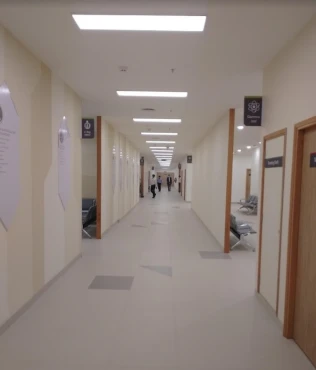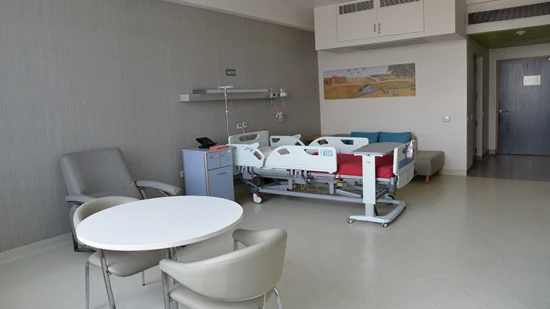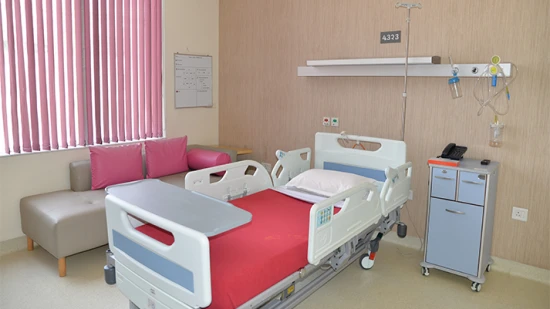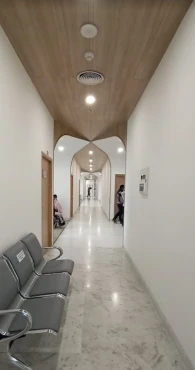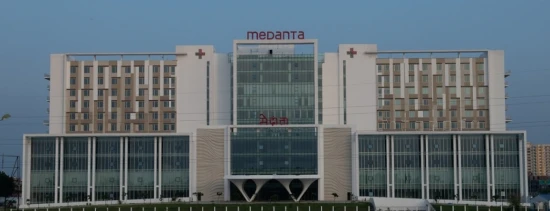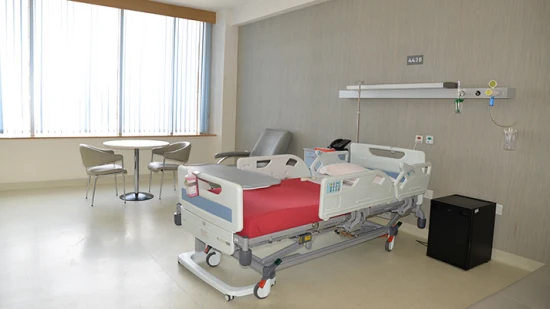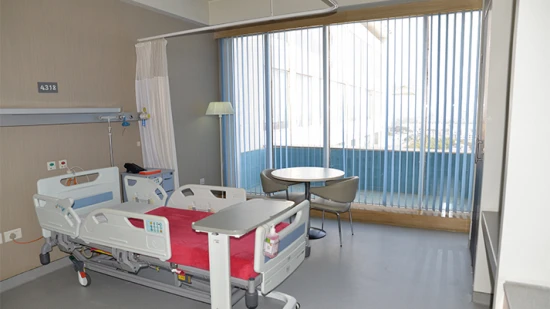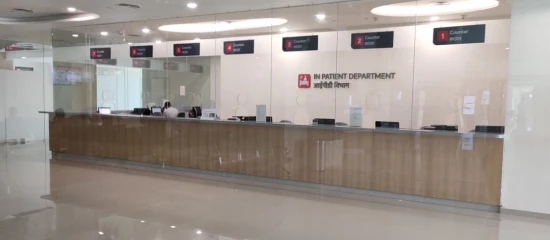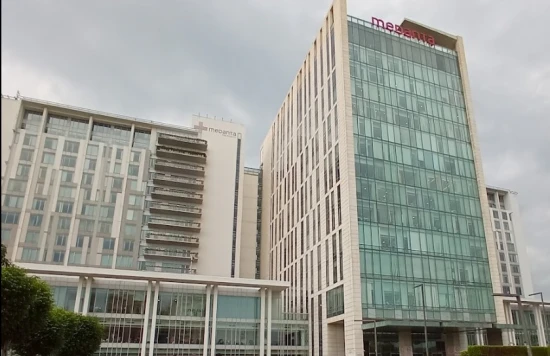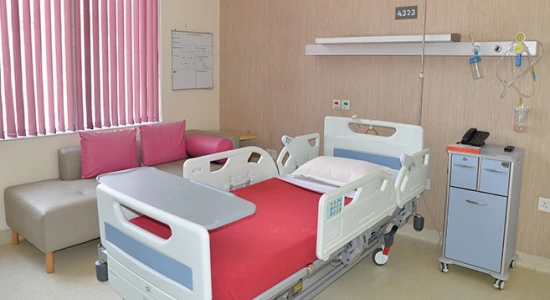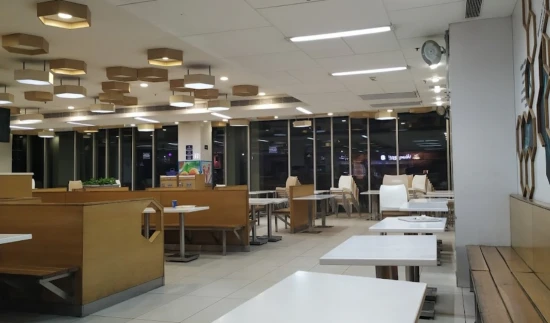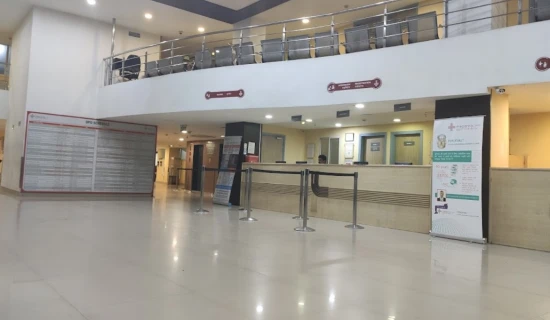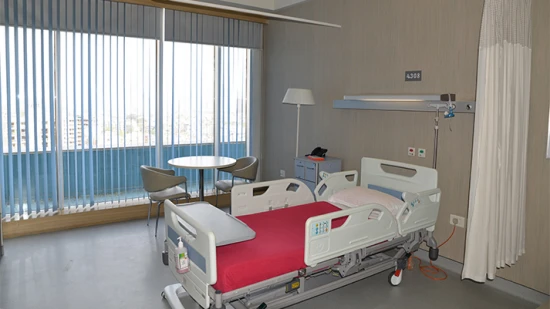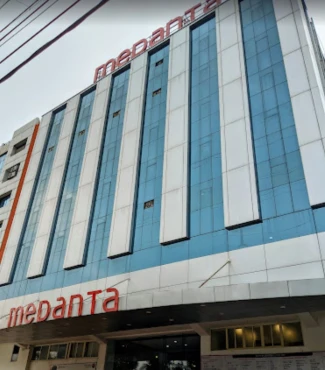Pulmonary valve stenosis treatment in 39 Cardiac surgery clinics in India
39 clinics specializing in Cardiac surgery providing treatment of
Pulmonary valve stenosis
Pulmonary valve stenosis is a heart condition where the pulmonary valve becomes narrowed, restricting blood flow from the right ventricle to the pulmonary artery. This can lead to increased pressure in the right side of the heart and reduced blood flow to the lungs.
Read more...
disease in India.
-
Transcatheter pulmonary valve replacement (PVR)
≈ $13,317
-
Balloon valvuloplasty
≈ $4,685
-
Percutaneous balloon pulmonary valvuloplasty (PBPV)
≈ $5,063
-
Open commissurotomy
≈ $2,083
-
Open pulmonary valvotomy
≈ $11,291
-
Dual chamber pacemaker insertion
≈ $4,408
-
Coronary artery bypass graft (CABG)
≈ $7,854
-
Heart valve replacement
≈ $11,777
-
Heart valve repair
≈ $13,941
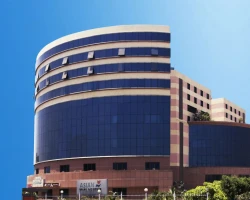
-
Transcatheter pulmonary valve replacement (PVR)
≈ $13,317
-
Balloon valvuloplasty
≈ $4,685
-
Percutaneous balloon pulmonary valvuloplasty (PBPV)
≈ $5,063
-
Open commissurotomy
≈ $2,083
-
Open pulmonary valvotomy
≈ $11,291
-
Dual chamber pacemaker insertion
≈ $4,408
-
Heart valve replacement
≈ $11,777
-
Heart valve repair
≈ $13,941
-
Aortic valve replacement (AVR)
≈ $8,576
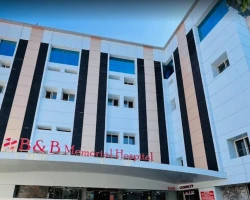
-
Transcatheter pulmonary valve replacement (PVR)
≈ $13,317
-
Balloon valvuloplasty
$625 - $1,264
-
Percutaneous balloon pulmonary valvuloplasty (PBPV)
≈ $5,063
-
Open commissurotomy
$972 - $1,667
-
Open pulmonary valvotomy
≈ $11,291
-
Dual chamber pacemaker insertion
≈ $4,408
-
Implantable cardioverter-defibrillator implantation (ICD)
$875 - $1,528
-
Coronary artery bypass graft (CABG)
≈ $7,854
-
Heart valve replacement
≈ $11,777

-
Transcatheter pulmonary valve replacement (PVR)
≈ $13,317
-
Coronary artery bypass graft (CABG)
≈ $7,854
-
Heart valve replacement
≈ $11,777
-
Heart valve repair
≈ $13,941
-
Aortic valve replacement (AVR)
≈ $8,576
-
Mitral valve replacement (MVR)
≈ $10,785
-
Transcatheter aortic valve replacement (TAVR)
≈ $27,230
-
Off-pump coronary artery bypass surgery
≈ $5,611
-
Radiofrequency ablation (RFA)
≈ $11,249

-
Transcatheter pulmonary valve replacement (PVR)
≈ $13,317
-
Balloon valvuloplasty
≈ $4,685
-
Percutaneous balloon pulmonary valvuloplasty (PBPV)
≈ $5,063
-
Open commissurotomy
≈ $2,083
-
Open pulmonary valvotomy
≈ $11,291
-
Dual chamber pacemaker insertion
≈ $4,408
-
Heart valve replacement
≈ $11,777
-
Heart valve repair
≈ $13,941
-
Aortic valve replacement (AVR)
≈ $8,576
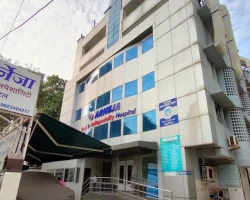
-
Transcatheter pulmonary valve replacement (PVR)
≈ $13,317
-
Balloon valvuloplasty
≈ $4,685
-
Percutaneous balloon pulmonary valvuloplasty (PBPV)
≈ $5,063
-
Open commissurotomy
≈ $2,083
-
Open pulmonary valvotomy
≈ $11,291
-
Dual chamber pacemaker insertion
≈ $4,408
-
Coronary artery bypass graft (CABG)
≈ $7,854
-
Heart valve replacement
≈ $11,777
-
Heart valve repair
≈ $13,941
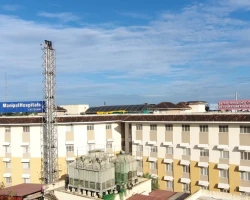
-
Transcatheter pulmonary valve replacement (PVR)
≈ $13,317
-
Dual chamber pacemaker insertion
≈ $4,408
-
Coronary artery bypass graft (CABG)
≈ $7,854
-
Heart valve replacement
≈ $11,777
-
Heart valve repair
≈ $13,941
-
Aortic valve replacement (AVR)
≈ $8,576
-
Mitral valve replacement (MVR)
≈ $10,785
-
Transcatheter aortic valve replacement (TAVR)
≈ $27,230
-
Off-pump coronary artery bypass surgery
≈ $5,611

-
Balloon valvuloplasty
≈ $4,685
-
Percutaneous balloon pulmonary valvuloplasty (PBPV)
≈ $5,063
-
Open commissurotomy
≈ $2,083
-
Open pulmonary valvotomy
≈ $11,291
-
Dual chamber pacemaker insertion
≈ $4,408
-
Coronary artery bypass graft (CABG)
≈ $7,854
-
Off-pump coronary artery bypass surgery
≈ $5,611
-
Permanent pacemaker implantation
≈ $6,212
-
Radiofrequency ablation (RFA)
≈ $11,249
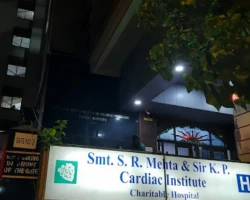
-
Transcatheter pulmonary valve replacement (PVR)
≈ $13,317
-
Balloon valvuloplasty
≈ $4,685
-
Percutaneous balloon pulmonary valvuloplasty (PBPV)
≈ $5,063
-
Open commissurotomy
≈ $2,083
-
Open pulmonary valvotomy
≈ $11,291
-
Dual chamber pacemaker insertion
≈ $4,408
-
Coronary artery bypass graft (CABG)
≈ $7,854
-
Heart valve replacement
≈ $11,777
-
Heart valve repair
≈ $13,941
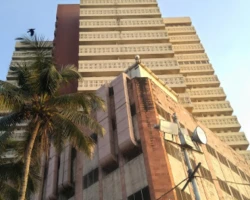
-
Transcatheter pulmonary valve replacement (PVR)
≈ $13,317
-
Balloon valvuloplasty
≈ $4,685
-
Percutaneous balloon pulmonary valvuloplasty (PBPV)
≈ $5,063
-
Open commissurotomy
≈ $2,083
-
Open pulmonary valvotomy
≈ $11,291
-
Dual chamber pacemaker insertion
≈ $4,408
-
Coronary artery bypass graft (CABG)
≈ $7,854
-
Heart valve replacement
≈ $11,777
-
Heart valve repair
≈ $13,941
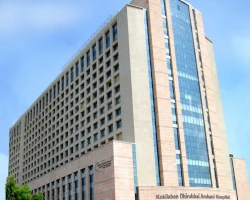
-
Transcatheter pulmonary valve replacement (PVR)
≈ $13,317
-
Balloon valvuloplasty
≈ $4,685
-
Percutaneous balloon pulmonary valvuloplasty (PBPV)
≈ $5,063
-
Open commissurotomy
≈ $2,083
-
Open pulmonary valvotomy
≈ $11,291
-
Dual chamber pacemaker insertion
≈ $4,408
-
Coronary artery bypass graft (CABG)
≈ $7,854
-
Heart valve replacement
≈ $11,777
-
Heart valve repair
≈ $13,941
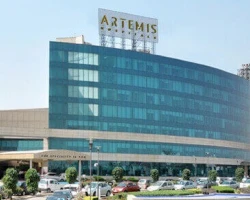
-
Transcatheter pulmonary valve replacement (PVR)
≈ $13,317
-
Balloon valvuloplasty
≈ $4,685
-
Percutaneous balloon pulmonary valvuloplasty (PBPV)
≈ $5,063
-
Open commissurotomy
≈ $2,083
-
Open pulmonary valvotomy
≈ $11,291
-
Dual chamber pacemaker insertion
≈ $4,408
-
Coronary artery bypass graft (CABG)
≈ $7,854
-
Heart valve replacement
≈ $11,777
-
Heart valve repair
≈ $13,941
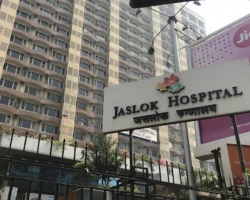
-
Transcatheter pulmonary valve replacement (PVR)
≈ $13,317
-
Balloon valvuloplasty
≈ $4,685
-
Percutaneous balloon pulmonary valvuloplasty (PBPV)
≈ $5,063
-
Open commissurotomy
≈ $2,083
-
Open pulmonary valvotomy
≈ $11,291
-
Dual chamber pacemaker insertion
≈ $4,408
-
Coronary artery bypass graft (CABG)
≈ $7,854
-
Heart valve replacement
≈ $11,777
-
Heart valve repair
≈ $13,941
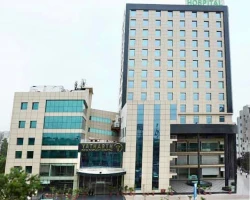
-
Transcatheter pulmonary valve replacement (PVR)
≈ $13,317
-
Balloon valvuloplasty
≈ $4,685
-
Percutaneous balloon pulmonary valvuloplasty (PBPV)
≈ $5,063
-
Open commissurotomy
≈ $2,083
-
Open pulmonary valvotomy
≈ $11,291
-
Dual chamber pacemaker insertion
≈ $4,408
-
Coronary artery bypass graft (CABG)
≈ $7,854
-
Heart valve replacement
≈ $11,777
-
Heart valve repair
≈ $13,941
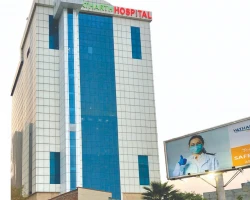
-
Transcatheter pulmonary valve replacement (PVR)
≈ $13,317
-
Balloon valvuloplasty
≈ $4,685
-
Percutaneous balloon pulmonary valvuloplasty (PBPV)
≈ $5,063
-
Open commissurotomy
≈ $2,083
-
Open pulmonary valvotomy
≈ $11,291
-
Dual chamber pacemaker insertion
≈ $4,408
-
Coronary artery bypass graft (CABG)
≈ $7,854
-
Heart valve replacement
≈ $11,777
-
Heart valve repair
≈ $13,941
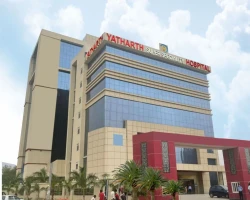
-
Transcatheter pulmonary valve replacement (PVR)
≈ $13,357
-
Dual chamber pacemaker insertion
≈ $4,421
-
Coronary artery bypass graft (CABG)
≈ $7,877
-
Heart valve replacement
≈ $11,813
-
Heart valve repair
≈ $13,983
-
Aortic valve replacement (AVR)
≈ $8,602
-
Mitral valve replacement (MVR)
≈ $10,817
-
Transcatheter aortic valve replacement (TAVR)
≈ $27,312
-
Off-pump coronary artery bypass surgery
≈ $5,628
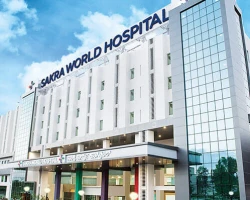
-
Transcatheter pulmonary valve replacement (PVR)
≈ $13,317
-
Dual chamber pacemaker insertion
≈ $4,408
-
Coronary artery bypass graft (CABG)
≈ $7,854
-
Heart valve replacement
≈ $11,777
-
Heart valve repair
≈ $13,941
-
Aortic valve replacement (AVR)
≈ $8,576
-
Mitral valve replacement (MVR)
≈ $10,785
-
Transcatheter aortic valve replacement (TAVR)
≈ $27,230
-
Off-pump coronary artery bypass surgery
≈ $5,611
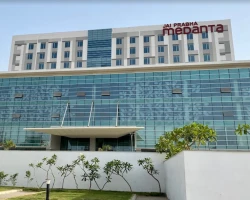
-
Transcatheter pulmonary valve replacement (PVR)
≈ $13,317
-
Dual chamber pacemaker insertion
≈ $4,408
-
Coronary artery bypass graft (CABG)
≈ $7,854
-
Heart valve replacement
≈ $11,777
-
Heart valve repair
≈ $13,941
-
Aortic valve replacement (AVR)
≈ $8,576
-
Mitral valve replacement (MVR)
≈ $10,785
-
Transcatheter aortic valve replacement (TAVR)
≈ $27,230
-
Off-pump coronary artery bypass surgery
≈ $5,611

-
Transcatheter pulmonary valve replacement (PVR)
≈ $13,317
-
Dual chamber pacemaker insertion
≈ $4,408
-
Coronary artery bypass graft (CABG)
≈ $7,854
-
Heart valve replacement
≈ $11,777
-
Heart valve repair
≈ $13,941
-
Aortic valve replacement (AVR)
≈ $8,576
-
Mitral valve replacement (MVR)
≈ $10,785
-
Transcatheter aortic valve replacement (TAVR)
≈ $27,230
-
Off-pump coronary artery bypass surgery
≈ $5,611
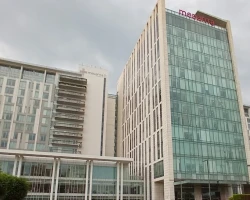
-
Transcatheter pulmonary valve replacement (PVR)
≈ $13,317
-
Dual chamber pacemaker insertion
≈ $4,408
-
Coronary artery bypass graft (CABG)
≈ $7,854
-
Heart valve replacement
≈ $11,777
-
Heart valve repair
≈ $13,941
-
Aortic valve replacement (AVR)
≈ $8,576
-
Mitral valve replacement (MVR)
≈ $10,785
-
Transcatheter aortic valve replacement (TAVR)
≈ $27,230
-
Off-pump coronary artery bypass surgery
≈ $5,611
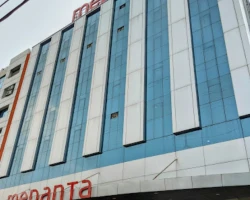
Clinics grouping by rating
Clinic with the highest rating of 4.8 — Arneja Heart & Multi-Speciality Hospital in Nagpur, India and 3 more, clinic with the most reviews number of 35757 — Aster CMI hospital in Bengaluru, India.
With rating 4.0 and over — 28 clinics .
Countries with the highest number of clinics treating the diseases:
Pulmonary valve stenosis:
Related procedures:
Quick navigation
- Balloon angioplasty and stenting of aorta coarctation $1,389 - $3,734
- Cardiac catheterization $1,880 - $1,885
- Coarctectomy in children $8,502 - $8,525
- Coil embolization of intracardiac shunts and fistulas $4,225 - $4,236
- Extracorporeal membrane oxygenation (ECMO) by request
- Heart tumor surgery $11,316 - $11,347
- Intraaortic balloon pump (IABP) procedure $1,977 - $1,982
- Left atrial appendage occlusion $7,693 - $7,715
- MAZE procedure $3,283 - $3,292
- Minimally invasive valvular heart surgery with valve repair or replacement by request
- NobleStitch™ PFO closure procedure by request
- Open-heart intracardiac foreign body removal $15,638 - $15,682
- Patent ductus arteriosus (PDA) open heart surgery in adults $5,227 - $5,241
- Percutaneous ASD closure $834 - $5,485
- Percutaneous closure of ventricular septal defect (VSD) $2,223 - $5,835
- Rashkind procedure $4,951 - $4,965
- Surgery for tetralogy of Fallot (TOF) in adults $2,223 - $4,904
- Surgical ventricular restoration (SVR) $9,576 - $9,603
- Transcatheter closure of patent ductus arteriosus (PDA) in adults $3,301 - $3,310
- Ventricular septal defect (VSD) repair $5,950 - $8,033
- Aortic valve insufficiency
- Aortic valve stenosis
- Atrial fibrillation (AFib)
- Coarctation of the aorta (CoA)
- Foreign bodies in the heart
- Heart failure
- Heart tumor
- Heart valve disease
- Mitral valve insufficiency
- Mitral valve stenosis
- Multivalvular disease
- Myocardial infarction (MI)
- Pneumonia
- Pulmonary hypertension
- Sinus of valsalva aneurysm (SOVA)
- Tricuspid valve insufficiency
- Tricuspid valve stenosis
- Valvular insufficiency
- Ventricular aneurysm
- Ventricular septal rupture (VSR)
